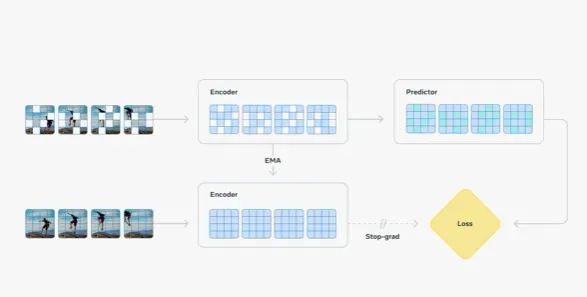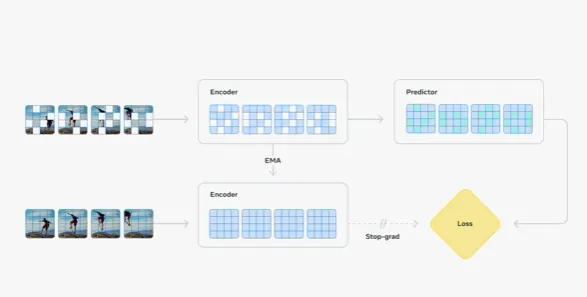Meta’s looking to take the next major steps in AI development, which has become a key focus for Meta CEO Mark Zuckerberg, as he eyes a new era of digital interaction, where true artificial intelligence can be achieved.
Meta’s latest project on this front is its V-JEPA 2 world model, which can help computer systems understand more about their environment, in order to factor such into their responses.

As explained by Meta:
“As humans, we have the ability to predict how the physical world will evolve in response to our actions or the actions of others. For example, you know that if you toss a tennis ball into the air, gravity will pull it back down. When you walk through an unfamiliar crowded area, you’re making moves toward your destination, while also trying not to bump into people or obstacles along the path. We achieve this physical intuition by observing the world around us and developing an internal model of it, which we can use to predict the outcomes of hypothetical actions.”
Meta’s V-JEPA 2 model helps AI agents mimic this, in order to assist in their understanding of the physical world, and therefore how they should respond to additional elements.
“We trained V-JEPA 2 using video, which helped the model learn important patterns in the physical world, including how people interact with objects, how objects move in the physical world and how objects interact with other objects. When deployed on robots in our labs, we found that robots can use V-JEPA 2 to perform tasks like reaching, picking up an object and placing an object in a new location.”
It’s another step towards automated general intelligence (AGI), and computer systems that replicate the human brain, and can “think” for themselves to some degree.
Which remains the Holy Grail of artificial intelligence research.
Right now, the current wave of generative AI tools are good at mimicking human thought, by replicating responses based on whatever data inputs they can access. But these are not actually “intelligence,” these systems are not thinking, they’re using advanced predictive models to place one letter in front of the other, based on the examples of similar inputs that they can reference.
They’re smart spreadsheets, they’re mimics of human behavior, but there’s no actual thinking involved, these systems are not interpreting the various elements and coming up with their own, novel solutions.
Which is what Meta’s looking to develop with its new “superintelligence” project, for which it’s hiring a range of industry experts for a bigger push into AGI development.
Is AGI even possible? Nobody knows, but Meta’s AI chief Yann Le Cun, who’s one of the most experienced and respected minds in AI development, seems to think so.
Though we’re not close yet.
As LeCun told the Joint Mathematics Meetings conference in March this year:
“A lot of people in the AI research and development community are perceiving the idea that perhaps we have a shot within the next decade or so of building machines that have a blueprint that might eventually reach human level intelligence. The estimates about how long it’s going to take vary by huge amounts, with the most optimistic people saying that we’re already there. Some people who are raising lots of funds are claiming it’s going to happen next year, but I don’t believe so myself.”
LeCun says that, through open source development, and a focus on key models, we could develop a human-level AI intelligence framework “within the next decade or half decade,” which would lead to systems that are capable of actual planning and reasoning.
But LeCun doesn’t believe that the current gen AI models are the right framework to build upon in this respect.
Maybe that will be part of Meta’s new project, in exploring all new ways to look at AI development, with a view to a different kind of intelligence that can assess and understand different elements.
This latest project is another step in that direction, and with Meta also upping its compute power significantly, it may well be best placed to crack the code, and build real systematic intelligence.
Imagine the Large Hadron Collider, but for AI development. That’s what Meta’s likely working towards with its new AI project.













